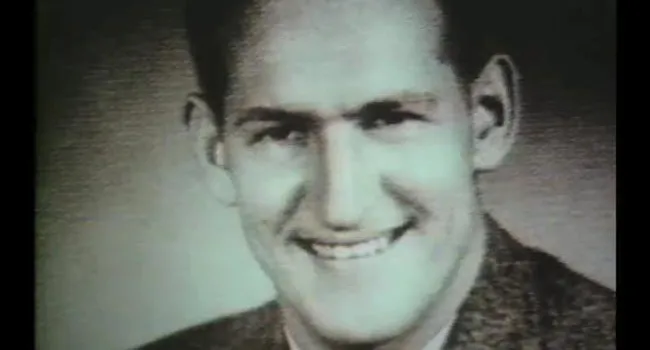Joseph William Holliday
(1827-1904)
Joseph William Holliday was the patriarch of a family that carved out an agricultural empire in South Carolina’s Pee Dee area.
Holliday had to overcome many obstacles but he epitomized perseverance both in his business and in his personal life.
Born February 14, 1827, near Little Washington, N.C., Holliday was the son of Joseph William and Tabitha (Coburn) Holliday. Both parents were members of long established eastern North Carolina families, although the Hollidays trace their American roots back to Virginia.
Orphaned at an early age, J.W. Holliday inherited a share in the sizable estate of his father. But his inheritance was quickly squandered by his guardians and he soon found himself working for uncaring relatives in a kind of indentured servitude.
Already, Holliday's life seemed to be in ruins. His hope for a formal education was gone. Surviving was a daily struggle. Yet, the experience was the fire that forged an iron resolve for which he would become known.
Opportunity arrived in the form of a job in the lumber and shingle business of a kinsman, Colonel H.B. Short. Young Holliday showed a marked initiative and enterprise while learning the lumber trade. His experience led to a pioneering business in the manufacture of naval stores.
Naval store products like tar, pitch, rosin and turpentine were used in the construction and maintenance of sailing ships. In the early 1800's naval stores became more important as our overseas commerce as well as our coastal defense depended upon a strong naval fleet.
Naval stores products were all derived from species of pine trees that grew abundantly in Horry County, South Carolina. In 1852, Holliday came to the banks of the Waccamaw River near Pot Bluff to start his own business. He a built a huge turpentine distillery in Horry County and quickly established a reputation as a successful businessman.
As industrialization began in the United States, Holliday found himself surrounded by forests of pines which held an enormous promise. Like petroleum today, turpentine became almost a universal ingredient in manufacturing. In the years leading up to the Civil War, Horry County was a major turpentine producer, bolstered by Holliday’s turpentine plantation of some nine thousand acres.
With the shots fired at Fort Sumter still echoing across South Carolina, Holliday was called to service by the Confederate government to operate the salt works. In addition to overseeing this key operation, he became a captain in the Home Guards.
The war cost Holliday his personal possessions and his businesses. And the hard times of the Reconstruction era tested his well-tempered survival skills. After the war, Holliday engaged in the naval stores business at Cool Springs from 1866 to 1868, then began to look westward to the edge of Horry County and Galivants Ferry.The post-bellum economy depended on time-supply mercantilism, and in 1869 Holliday opened a store, which he had bought from a dentist, Dr. William King Jordan. The store, on the banks of the Little Pee Dee, became the major source of farm supplies in western Horry County.
Unlike the large plantation-based farms of nearby Marion County, western Horry County was little changed from the early pioneer days. It was an agrarian economy scratched out of a sandy, swampy landscape. This area of the state was isolated by numerous rivers and swamps, and the inhabitants sometimes referred to themselves as the “Independent Republic of Horry.”
Yet Holliday’s enterprises thrived. As a naval stores operator, merchant, planter and community leader, Holliday soon paid his debts and began amassing a fortune. He was also a partner in a prosperous mercantile business in Homerville, Georgia, in the late 1870s.
In 1870, he was elected Horry county commissioner, in part because of his service as a captain in the Home Guard. He agreed to serve until the county paid off its debts and he requested that his salary go to building roads and bridges in the county.
Holliday was the first postmaster of Galivants Ferry. He also held the postmastership at the community of Savage, later Kingsburg, where he had a general store.
Holliday gave the site and provided the materials to build the Baptist Church of Galivants Ferry that was organized by his wife, Mary Elizabeth Grissette. Mrs. Holliday was a student at Limestone College in the late 1850's before she became mistress of a large plantation and estate. They had eight children. She died June 10, 1889.
In 1891, Holliday married his wife’s sister, Nettie Grissette. They had three children.
The store was a lifeline for the farmers of western Horry County and the center of the community. The post office was the connection to the outside world. The river moved goods to market. So, it was only natural that one of the South's longest running political events would take root in Galivants Ferry.
The famous Galivants Ferry stump meeting began late in the Nineteenth Century and became a Democratic Party tradition. The stumping, which the Holiday family descendants and their friends nurtured in later years, was held at the family store and began to attract statewide candidates. The event became such a tradition that the Library of Congress designated it as a local legacy.
Except for his service as county commissioner Holliday refused to be lured into seeking public office although he was described in “Men of Mark” as “a man of great strengths and character, possessed of a wonderful amount of energy and determination, and of a great store of common sense.”
Holliday was also quick to recognize a business opportunity. An eastern North Carolina friend introduced him to a new way of processing tobacco. The process of flue-cured tobacco was introduced to Horry County by Holliday. It was an ideal crop for much land in the county. A family farmer could make more from five acres of tobacco than 50 acres of cotton. At one time, the Holliday tobacco interests, scattered from Loris to Conway to Toddville, supported between 1,200 and 1,500 people.
Holliday had other interests, including horses. According to historical accounts, he always owned fine horses and racing them was his favorite sport.
Holliday was best known, however, for his public spiritedness. He cared about education, perhaps because it was an opportunity he didn’t have. His son, George Judson Holliday, was a Harvard law school graduate who came home to help his father run the family business.
Just two years after the first wooden bridge at Galivants Ferry opened access to the rest of South Carolina, J.W. Holliday died on April 30, 1904.
In 2004 he was named to the South Carolina Business Hall of Fame.
The moss-covered trees and black water of the Little Pee Dee still mark the section of U.S. 501 between Galivants Ferry and Conway that is called the Holliday area. It is named in honor of Joseph William Holliday and other members of the family that has long been a household word in eastern South Carolina.
He was inducted into the South Carolina Business Hall of Fame in 2004.
© 2004 South Carolina Business Hall of Fame











